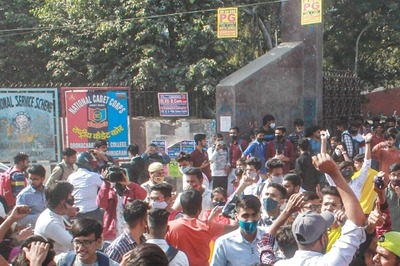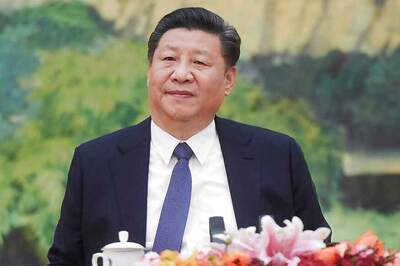
views
Days after the announcement of Bharat Ratna for the late former Bihar CM Karpoori Thakur, his family met Prime Minister Narendra Modi on Monday to thank him for the honour.
PM Modi posted on X: “Very happy to meet the family members of Bharat Ratna awarded public leader Karpoori Thakur ji. Karpuri ji has been the messiah of the backward and deprived sections of the society, whose life and ideals will continue to inspire the countrymen."
भारत रत्न से सम्मानित जननायक कर्पूरी ठाकुर जी के परिजनों से मिलकर बहुत खुशी हुई। कर्पूरी जी समाज के पिछड़े और वंचित वर्गों के मसीहा रहे हैं, जिनका जीवन और आदर्श देशवासियों को निरंतर प्रेरित करता रहेगा। pic.twitter.com/Ihp7B08LXu— Narendra Modi (@narendramodi) February 12, 2024
Thakur, popularly known as ‘Jan Nayak’, served as chief minister from December 1970 to June 1971 and from December 1977 to April 1979. He died on February 17, 1988.
According to the government, “this award is not only a recognition of Shri Thakur’s past achievements but also serves as an inspiration for future generations. It is a reminder of the values that Shri Thakur stood for – simplicity, inclusiveness, and the tireless pursuit of social justice".
“I am delighted that the Government of India has decided to confer the Bharat Ratna on the beacon of social justice, the great Jan Nayak Karpoori Thakur Ji and that too at a time when we are marking his birth centenary. This prestigious recognition is a testament to his enduring efforts as a champion for the marginalized and a stalwart of equality and empowerment," PM Modi had said in an X post after the announcement, adding, “His unwavering commitment to uplift the downtrodden and his visionary leadership have left an indelible mark on India’s socio-political fabric. This award not only honours his remarkable contributions but also inspires us to continue his mission of creating a more just and equitable society."
Thakur’s tenure as Bihar’s chief minister in the 1970s proved to be groundbreaking, especially for the deprived sections of society. He introduced the “Karpoori Thakur Formula" for reservation, which aimed to ensure equitable representation for backward classes in government services.
In November 1978, Thakur implemented a 26% reservation for backward classes in Bihar, a move that set the stage for the Mandal Commission recommendations in the 1990s. This policy not only empowered the backward classes but was responsible for the rise of regional parties that changed the face of politics in the Hindi heartland.




















Comments
0 comment